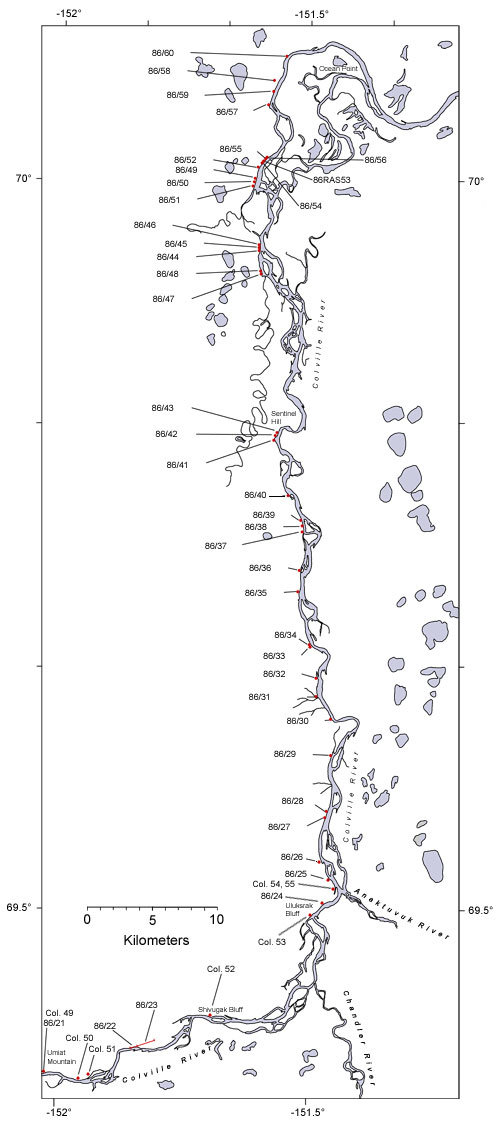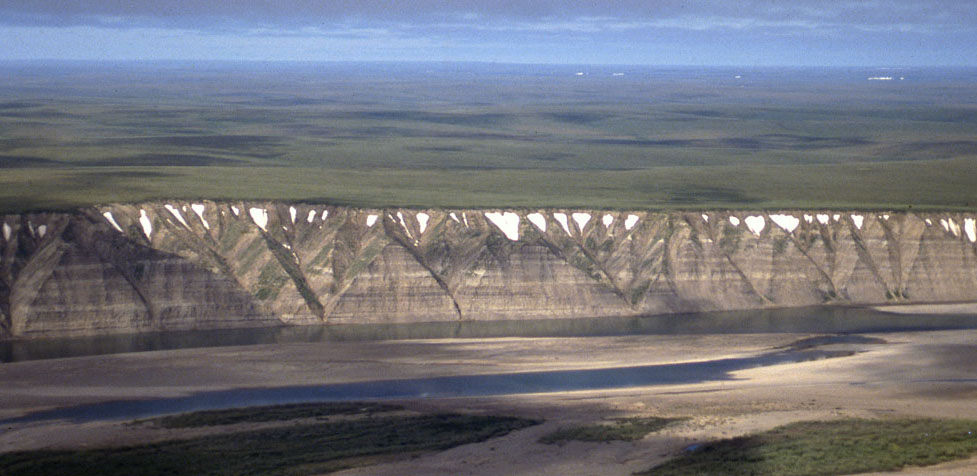Lower Colville River, Locality 86/46
| Northern Alaska Map |
|---|
Kogosukruk Tongue of the Prince Creek Formation. The base of the exposed part of the section consist of a dark gray-olive mudstone at least 1.7 m thick containing dispersed plant fragments and Equisetites rhizomes with nodules. This unit coarsens up into a gray siltstone and becomes more indurated and greenish-gray with ripple marks and rare wood impressions. This more indurated siltstone is approximately 45 cm in thickness and is overlain by a dark olive gray mud (approximately 1.5 m thick) with abundant carbonaceous debris and Equisetites rhizomes. The Equisetites remains are concentrated in two horizons, one at about 1 m from the base of the unit and one near the top. At the top of the unit the mudstone gives way to a dark sticky clay (5 cm thick) overlain by a 1.5 cm thick sand layer with abundant plant debris and twigs. This is in turn overlain by a dark gray sticky siltstone approximately 1.3 m thick before being covered at the top of the section. No megafossils were collected or photographed. |

|
|
| Interactive map of the lower reaches of the Colville River showing plant fossil localities sampled by Smiley (1969) and by Parrish and Spicer in 1986. | ||
 |
||
| Part of the exposure of the Prince Creek Formation (formerly the Kogosukruk Tongue of the Prince Creek Formation) on the western side of the Colville River between Uluksrak Bluff and Ocean Point. | ||
